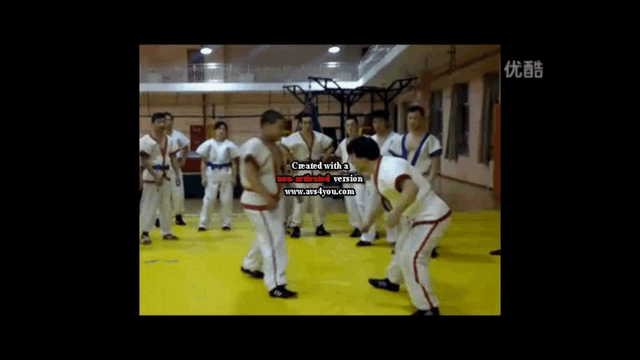The problem is if your opponent doesn't resist, you will never learn how to take advantage on his resisting.There are many in the aiki world who look down at anything viewed as competitive, including actual resistive sparring.
For example, when you apply wrist lock on me, if I raise my elbow up, what will you do?
In other words, the Aikido train how to deal with yielding force, but they don't train how to deal with resisting force.

